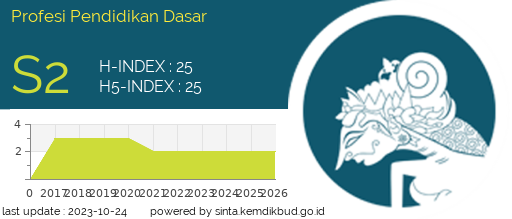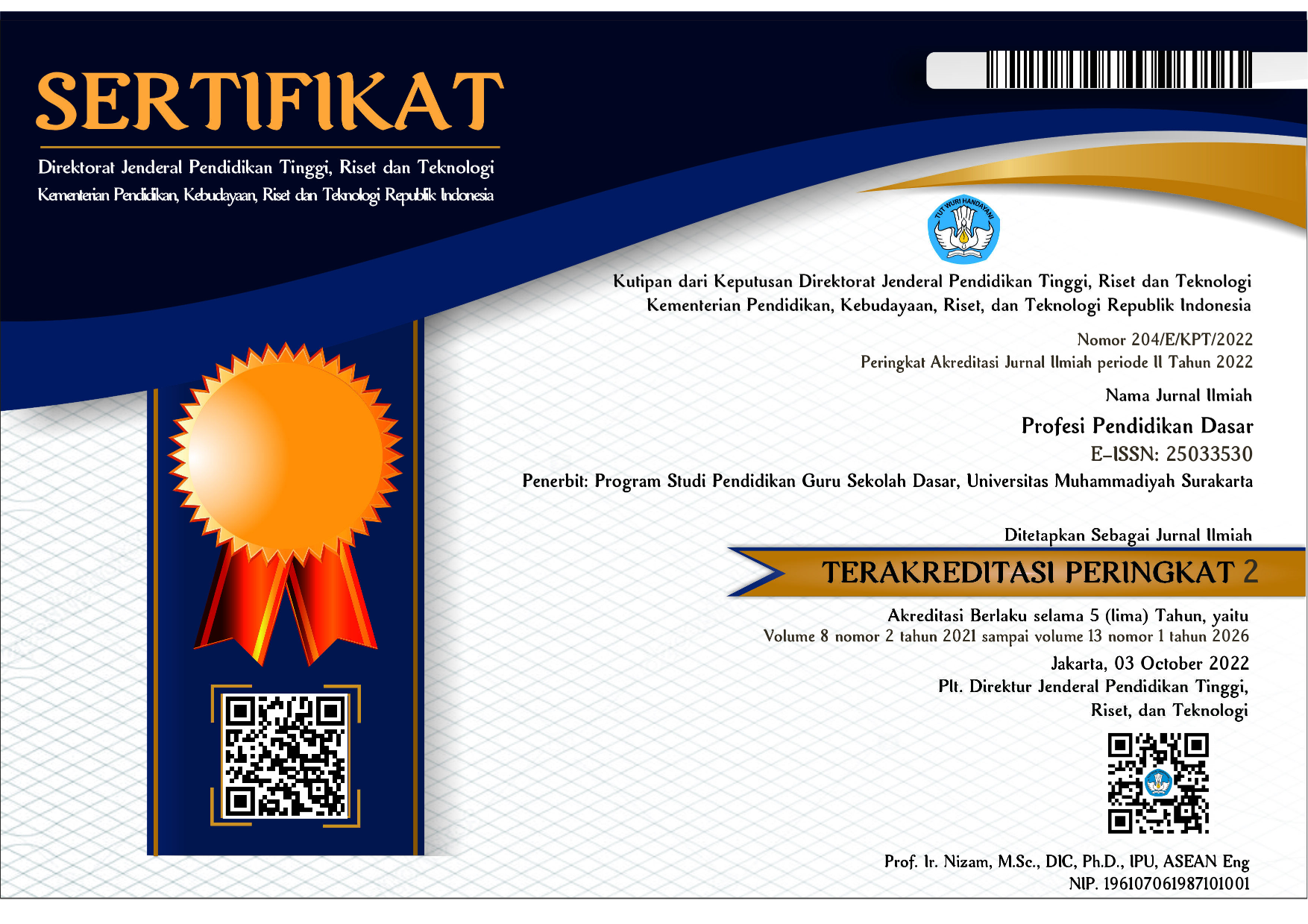The Role of Parental Social Support and Self-Efficacy in Encouraging the Learning Independence of Elementary School Students
DOI:
https://doi.org/10.23917/ppd.v12i1.7081Abstract
Student learning independence presents a significant challenge, as numerous students exhibit an undue dependence on peers or instructors and a deficiency in motivation for self-directed learning. This study examines the development of learning autonomy in fourth-grade students at public elementary schools in relation to self-efficacy and parental support. This study used an ex post facto design and quantitative methodology, with a sample of 150 students drawn from a population of 228, using the Taro Yamane formula at a 5% significance level. Data was collected using validated and reliable questionnaires, and normality and linearity were assessed prior to hypothesis testing using Pearson correlation. The findings revealed a significant positive correlation between self-efficacy and learning independence (r = 0.249) and between parental support and learning independence (r = 0.431). The determination coefficient of 0.272 indicates that the combined influence of self-efficacy and parental support is more significantly associated with learning independence (r = 0.521), accounting for 27.2% of the variance in students' learning independence. The findings provide empirical evidence of the synergistic impact in elementary education settings, implying that increasing students' self-efficacy and parental engagement can significantly improve learning autonomy
Downloads
Downloads
Submitted
Accepted
Published
How to Cite
Issue
Section
License
Copyright (c) 2025 Astary Virgiandini, Muthmainnah Muthmainnah

This work is licensed under a Creative Commons Attribution-NonCommercial 4.0 International License.











